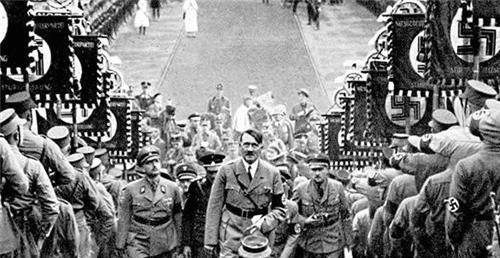We know that communication between people is very important, and sometimes the meaning is not clearly expressed, resulting in misunderstandings. It is very likely that the relationship between them will create cracks, and even irrefutable contradictions. When the level of language rises to the height of the state, the impact is even greater. For example, during World War II, a Japanese translator made a slip of the tongue that indirectly buried 600,000 Japanese people in the fire.

As we know, World War II was provoked by the fascist Axis powers Nazi Germany, the Kingdom of Italy and the Empire of Japan, and on September 27, 1940, diplomatic representatives of Germany, Italy and Japan signed the Treaty of The Triple Alliance between Germany, Italy and Japan in Berlin. A military group was formed with Berlin, Rome, and Tokyo as the axis.
As one of the fascist Axis powers, Japan was naturally attacked by the joint crusade of all countries in the world. World War II began in 1939 to 1945, and through the joint efforts of the world's anti-fascists, World War II finally came to an end. The Fascist Axis powers were already doomed to defeat.
On July 26, 1945, China, Britain, and the United States jointly issued the Potsdam Proclamation, the main content of which was to indicate that the Allies "will deal a final blow to Japan until the resistance ceases." The purpose was to make it clear that Japan, which was still dying, should quickly accept the surrender and not to make any more fearless sacrifices.
On July 27, 1945, Japanese Prime Minister Suzuki Kantaro convened a cabinet meeting, and there was a heated discussion at the top of the Japanese leadership on this announcement, but the opinions discussed were very different, so they did not come up with a definite answer, and they even wanted to get a more favorable opportunity for negotiations through the Soviet Union.
Later Japanese Prime Minister Kantaro Suzuki expressed his opinion on behalf of the Japanese cabinet, which translated the meaning that no matter what the content of the Potsdam Proclamation of the United States, Britain, and China was, it was completely ignored, and the Japanese side refused to surrender. From this sentence, we can see that Japan is unwilling to accept the Potsdam Proclamation and must stubbornly resist to the end.
At that time, World War II had been fought for six years, at least 2 billion people were involved in the war, and the total casualties of the military and civilians were tens of millions. It can be said that the countries of the world are exhausted, and in order to end the war as soon as possible, the United States moves with the final means. On August 6 and 9, 1945, atomic bombs were dropped on Hiroshima and Nagasaki, respectively.
The two atomic bombs directly razed Hiroshima and Nagasaki to the ground, causing 210,000 direct deaths and more than 600,000 indirect deaths due to radiation. The Japanese government was forced to send a surrender note to the Allies and on August 14, 1945, it announced its acceptance of the Potsdam Proclamation and issued an edict of surrender.
After the end of World War II, the Japanese people have pointed the finger at Japanese Prime Minister Suzuki Kantaro, if it is because the Japanese government accepted the announcement, there would be no follow-up, but Suzuki Kantaro said that he only said that he could not respond immediately, did not refuse, is the translator did not express the meaning in place.
Judging from the original Japanese version published by Kantaro Suzuki, there is indeed a deviation. "No response to this announcement" was translated into "Complete disregard for this announcement." "But the international community knows that Suzuki Kantaro is a person who likes to play word games, and he wants to use this ambiguous attitude to confuse things, but he did not expect to end up in trouble." Who should carry this pot? I think everyone already has the answer in their hearts.